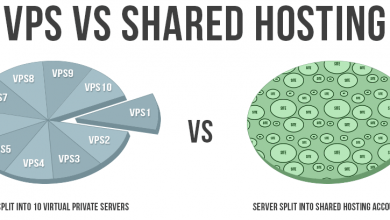The Power of Dedicated Servers: Unveiling Unmatched Performance and Reliability
In the rapidly evolving landscape of web hosting, dedicated servers stand out as the epitome of performance, reliability, and control. These robust computing powerhouses play a pivotal role in powering websites, applications, and businesses with unparalleled efficiency. This article delves into the intricacies of dedicated servers, exploring their benefits, use cases, and why they remain a cornerstone for businesses seeking optimal performance.

The Power of Dedicated Servers
Unmatched Performance:
Dedicated servers are synonymous with raw computing power. Unlike shared hosting environments where resources are distributed among multiple users, a dedicated server is exclusively allocated to a single user or entity. This exclusivity translates into superior performance, ensuring that the server’s entire processing power, memory, and storage are dedicated to one purpose. This results in faster load times, efficient data processing, and an overall seamless user experience.
Enhanced Security:
Security is a paramount concern in the digital age, and dedicated servers offer a robust solution. With no sharing of resources, the risk of security breaches from neighboring websites or applications is significantly reduced. Users have full control over security configurations, allowing for tailored solutions such as firewalls, encryption, and regular security audits. This heightened level of security is especially crucial for businesses handling sensitive data and transactions.
Customization and Control:
Dedicated servers provide users with unprecedented customization options and control. Users have the flexibility to choose the hardware specifications, operating system, and software applications that align with their specific needs. This level of customization ensures that the server is optimized for the unique requirements of the hosted applications or websites. Additionally, users have full administrative access, allowing them to configure and manage the server environment according to their preferences.
Scalability:
The scalability of dedicated servers is a key factor in their appeal. As businesses grow, so do their hosting needs. Dedicated servers can easily accommodate increased traffic, data storage requirements, and additional applications without compromising performance. This scalability ensures that businesses can seamlessly expand their online presence without the limitations often associated with shared hosting environments.
Reliability and Uptime:
Downtime can have severe consequences for businesses, leading to loss of revenue and damage to reputation. Dedicated servers, with their dedicated resources and robust infrastructure, offer unparalleled reliability and uptime. The isolation from other users eliminates the risk of resource contention, ensuring consistent and reliable performance even during periods of high traffic.
Ideal for Resource-Intensive Applications:
Resource-intensive applications, such as large e-commerce platforms, data-intensive websites, and complex databases, benefit significantly from dedicated servers. The dedicated resources prevent bottlenecks and ensure that these applications operate at peak efficiency, providing a seamless experience for users.
Conclusion:
In conclusion, dedicated servers remain at the forefront of web hosting solutions, offering a compelling combination of performance, security, and control. Businesses that prioritize reliability, customization, and scalability find dedicated servers to be an indispensable asset in their digital infrastructure. As the digital landscape continues to evolve, the enduring relevance of dedicated servers is a testament to their ability to meet the demanding requirements of today’s online world.
What are the alternatives to dedicated servers?
Several alternatives to dedicated servers exist, each catering to specific needs, preferences, and budget constraints. Here are some notable alternatives:
Shared Hosting:
In shared hosting, multiple users share the same server resources. While this is a cost-effective option, it may result in slower performance and limited customization options due to the shared nature of resources.
Virtual Private Servers (VPS):
VPS hosting involves dividing a physical server into multiple virtual servers, each with its own dedicated resources. It provides a balance between cost efficiency and performance, offering more customization and control compared to shared hosting.
Cloud Hosting:
Cloud hosting utilizes a network of interconnected virtual and physical servers. Resources are distributed dynamically, allowing for scalability and flexibility. Users pay for the resources they consume, making it a cost-effective option for varying workloads.
Colocation Hosting:
Colocation involves renting space in a data center to house your own server hardware. While you have full control over your equipment, you are responsible for maintenance, security, and management. Colocation is suitable for businesses with specific hardware requirements.
Managed Hosting:
Managed hosting providers handle server administration tasks, allowing users to focus on their business without dealing with technical aspects. This can include security, monitoring, updates, and backups. It’s a good option for those who require a hands-off approach to server management.
Clustered Hosting:
Clustered hosting involves distributing website or application resources across multiple servers. This enhances reliability and performance, as if one server fails, another can take over. It’s often used for high-availability and fault-tolerant systems.
Reseller Hosting:
Reseller hosting allows individuals or businesses to sell hosting services on behalf of a hosting provider. It’s a cost-effective way for entrepreneurs to enter the hosting market without managing the infrastructure.
Content Delivery Network (CDN):
CDNs distribute website content across multiple servers located in different geographic locations. This reduces latency and improves load times for users globally. While not a direct hosting solution, CDNs complement hosting services for improved performance.
Serverless Computing:
Serverless computing abstracts server management entirely. Users only pay for the computing resources consumed during the execution of functions or applications. It is suitable for event-driven and microservices architectures.
The choice of hosting solution depends on factors such as performance requirements, scalability, budget, and the level of control desired. Each alternative has its own advantages and trade-offs, so it’s essential to assess specific needs before selecting the most appropriate hosting option.
Also: start to make Website For an effective and working website




